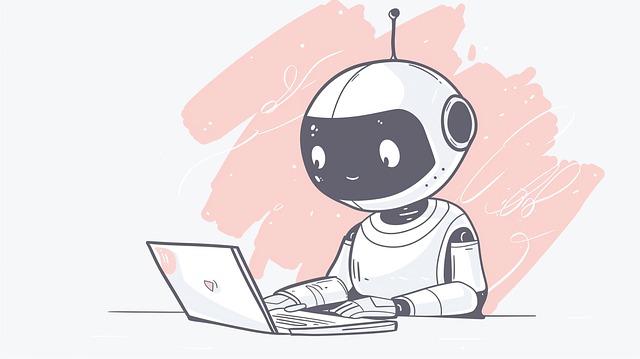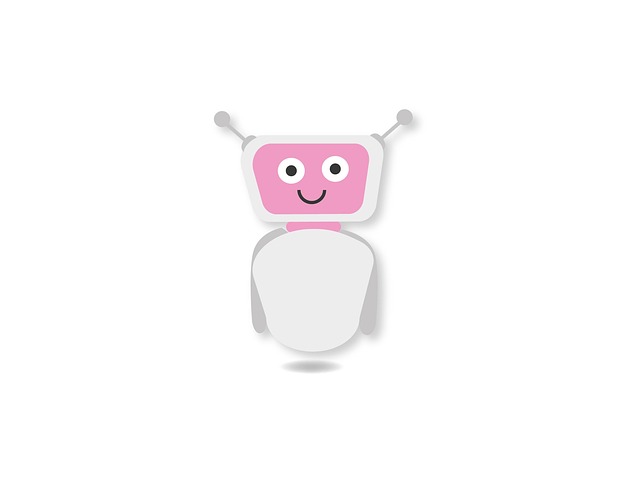Chatbot AI, leveraging natural language processing (NLP), facilitates automated conversations in diverse sectors like customer service and healthcare. Key components include analyzing user inputs, generating contextually relevant responses through pre-programmed algorithms and machine learning, enabling personalized, efficient, and accessible communication in real time. Scripted chatbots interpret user messages, identify keywords, and access a database of predefined responses to handle a wide range of inquiries logically, providing quick solutions or routing users to human agents when necessary. They offer consistent, accurate responses, 24/7 availability, immediate response times, and personalized interactions, improving customer satisfaction and freeing up human agents to tackle complex issues, enhancing operational efficiency and reducing costs across various sectors.
Chatbots have transformed digital interactions, and scripted chatbots are at the forefront of this revolution. These advanced AI tools utilize pre-written scripts to engage users in natural language conversations. In this article, we’ll delve into the intricacies of chatbot AI, focusing on the fundamental understanding, operational mechanisms, and remarkable benefits of scripted chatbots. From enhancing customer service to streamlining tasks, discover how these intelligent agents are reshaping our digital landscape.
- Understanding Chatbot AI: The Basics
- How Scripted Chatbots Work
- Benefits and Applications of Scripted Chatbots
Understanding Chatbot AI: The Basics

Chatbot AI, or Artificial Intelligence, is the technology behind automated conversational agents. At its core, a chatbot AI system uses natural language processing (NLP) to understand and interpret human language, enabling it to engage in meaningful dialogue with users. These systems are designed to simulate human-like interactions, making them useful across various sectors, from customer service to healthcare.
The basic functioning of chatbot AI involves several key components. First, it analyzes user inputs, breaking down text into meaningful units and identifying intent. Then, using pre-programmed algorithms and machine learning capabilities, the chatbot generates appropriate responses in real time. This dynamic interaction is what makes chatbot AI such a powerful tool, allowing for personalized, efficient, and accessible communication between machines and humans.
How Scripted Chatbots Work

Scripted chatbots operate through a series of pre-programmed responses and rules, making them a type of artificial intelligence (AI) designed for conversational interactions. These chatbots are developed using natural language processing (NLP) techniques to understand user inputs and generate appropriate answers. The process begins when a user sends a message or query; the chatbot AI interprets the text, identifies keywords, and uses these to access a database of predefined responses. Each response is tailored to specific user inputs, ensuring a contextually relevant conversation.
The effectiveness of scripted chatbots lies in their ability to follow logical branching paths, allowing them to handle a wide range of customer inquiries. They can be programmed with common questions and scenarios, enabling them to provide quick solutions or route users to human agents when necessary. This structured approach ensures consistent and efficient user experiences while leveraging the power of AI for seamless interactions.
Benefits and Applications of Scripted Chatbots

Scripted chatbots offer numerous benefits, particularly in enhancing customer service and support experiences. These AI-powered tools are designed to interact with users through pre-written scripts, ensuring consistent and accurate responses. By employing chatbot ai, businesses can provide 24/7 availability, immediate response times, and personalized interactions, thus improving customer satisfaction.
The applications of scripted chatbots are vast and diverse. They can be utilized in various industries, from healthcare and banking to retail and travel. For instance, a scripted chatbot can assist customers in finding products, processing orders, or providing basic medical information. Their ability to handle frequent and repetitive queries efficiently allows human agents to focus on more complex issues, leading to improved operational efficiency and cost savings for organizations.
Chatbots have evolved significantly, and scripted chatbots are a testament to this progress. By leveraging Chatbot AI, these tools offer enhanced user experiences through structured conversations, making them indispensable in various sectors. Their ability to follow predefined scripts ensures consistency and efficiency, catering to a wide range of applications from customer service to entertainment. As technology advances, the potential of scripted chatbots continues to unfold, shaping the future of human-machine interactions.
